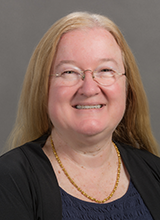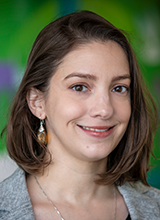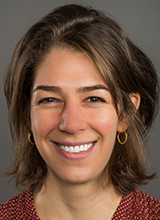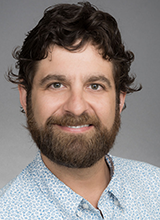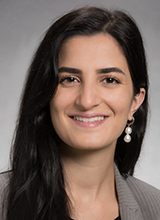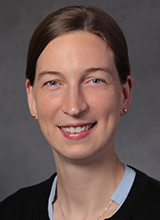I recently joined the faculty at UW and am the new program director for the general residency program. I am excited to be here! I have been working in graduate medical education and have been a program director for over 14 years. Although my major focus is graduate medical education, I am also passionate about patient safety, quality improvement, and healthcare risk management. Additionally, I have a background in basic research with expertise in virology, microbiology, and immunology.
I am a bilingual, bicultural psychiatrist with interests in cultural psychiatry, psychotherapy, trauma-informed care, and improving quality of care and safety for our patients/families that receive care in a language other than English and other underserved communities.
I joined the Child and Adolescent Psychiatry faculty at the University of Washington in Fall of 2022 after completing my Child and Adolescent Psychiatry training here at the University of Washington at Seattle Children’s Hospital and General Psychiatry SUNY Upstate Medical University, with emphasis in Dialectical Behavioral Therapy and Trauma Focused- Cognitive Behavioral Therapy.
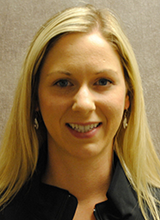
I am an Acting Assistant Professor in the Department of Psychiatry and Behavioral Sciences at the University of Washington. I received my MD, MPH from the University of Nebraska Medical Center and completed my adult residency at the University of Washington where I was chief resident. I then went on to complete a fellowship in Consultation-Liaison Psychiatry at the University of Washington. I am currently on faculty at Harborview Medical Center on the inpatient psychiatry unit and inpatient psychiatry consult service. I have a longstanding interest in the intersection between medicine and psychiatry and in working with people who suffer from serious mental illness and treatment-resistant conditions. I have clinical interests in ECT, psychopharmacology, co-morbid medical conditions, and adjunctive psychotherapies. I value caring for the whole person through thorough and accurate diagnosis, treating co-morbid medical conditions, and minimizing medications when possible. I have teaching interests in reducing stigma surrounding serious mental illness and educating residents and medical students about psychiatric care.
I enjoy collaborating with patients and viewing their concerns through a holistic lens. I believe that transparent, integrated care is the most effective way to arrive at an accurate case conceptualization and treatment plan. My background in the neurosciences and medical psychiatry has offered me a comprehensive understanding of the biologic basis of psychiatric illness and the strength of the mind-body connection. My practice has span clinical, academic and research realms and afforded me opportunities to work with treatment-resistant depression, neuromodulation therapies, medical complexities and patients impacted by hormonal changes related to puberty, pregnancy, gender transitions and menopause. I enjoy learning from my patients and remain humbled by their resilience.
I am a child and adolescent psychiatrist with interests in medical education, infant and early childhood mental health, and psychotherapy. I direct psychotherapy training for child and adolescent psychiatry (CAP) fellows, co-lead the CAP fellows’ didactic curriculum, and coordinate the CAP training experiences of general psychiatry residents.
My clinical work includes treatment in the outpatient setting for young children through adolescents, working closely with their families. I am passionate about psychiatrists supporting families comprehensively. I seek to use not only medications (if appropriate) but also behavioral/psychotherapeutic approaches.
I have done research on expanding behavioral treatments for young children by involving peer supports—caregivers who have previously participated in the programs for their own children—as members of the care team.
Nathan Sackett, MD, MS is trained as an addiction psychiatrist, focusing on the intersection between substance use and psychiatric disorders. He attended medical school and nursing school at UCSF, graduate school at UC Berkeley and completed his adult psychiatry residency and addiction psychiatry fellowship at the University of Washington. He is now a junior faculty at the University of Washington in the Department of Psychiatry and Behavioral Sciences where he splits his time between seeing patients and research. Clinically, he works primarily outpatient seeing a range of patients with primary psychiatric issues and substance use disorders. His research focuses on the use of psychedelics to treat substance use disorders with a particular interest in how psychedelics can augment the psychotherapeutic process and facilitate behavioral change. When he is not working, he is spending time with his family and playing in the ocean.
I am an addiction psychiatrist and Acting Assistant Professor in the Department of Psychiatry and Behavioral Sciences at the University of Washington. My clinical expertise include treating substance use disorders in the outpatient and inpatient settings as well as general psychiatric illness. I also work with the Healthcare for the Homeless Network, through Harborview Medical Center. I’m interested in working with under-served populations and expanding their access to care.
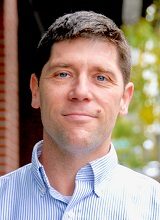
Dr. Banta-Green studies substance use involving opioids and stimulants and interventions to support recovery and reduce substance-related harms. He is particularly interested in developing interventions that are accessible to all people, including those who are most marginalized, such as those who are unhoused, utilizing services syringe service programs, and/or in the criminal legal system. He provides technical assistance and evaluation services for public health and safety interventions including the website http://stopoverdose.org, and information for the general public and professionals about effective treatments at http://learnabouttreatment.org. As an epidemiologist he develops innovative approaches to measuring the use and impacts of substances as well as service utilization. His health services research involves clinical trials, implementation research, and secondary data analyses. He serves on local, state, and federal workgroups and committees related to epidemiology, policy, and interventions for illicit substance-related problems. He is a member of the U.S. Health and Human Service’s Interdepartmental Substance Use Disorders Coordinating Committee.
Anna Sunshine completed her medical school, graduate school and psychiatry training at the University of Washington. Her graduate training was completed in the Department of Genome Sciences where she used high-throughput sequencing approaches to study the biological effects of complex genetic changes in the model organism Saccharomyces cerevisiae.
Connecting her background in genomics with psychiatry, Dr. Sunshine’s research now focuses on identifying genetic risk factors for schizophrenia and characterizing the biological effects of these risk alleles using induced pluripotent stem cell (iPSC) systems. Dr. Sunshine engages individuals living with schizophrenia and their families in research to further our current understanding of schizophrenia biology and help lay groundwork for future treatment development.
I completed my adult psychiatry residency at the University of California, Davis and went on to complete my child & adolescent psychiatry fellowship at Seattle Children’s. My clinical work is focused on inpatient psychiatry and psychopharmacology. I have a particular interest in working with families and children in management of disruptive behavior disorders.
